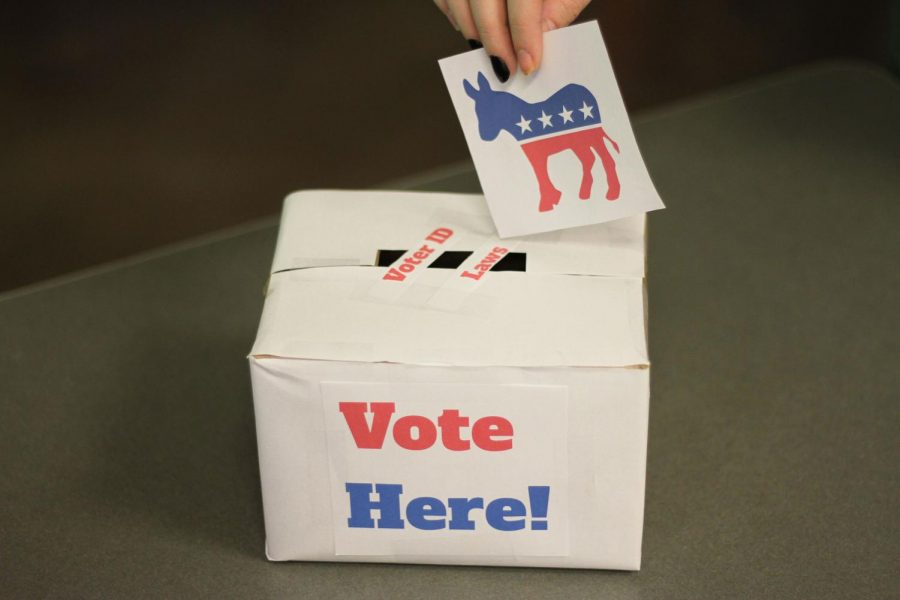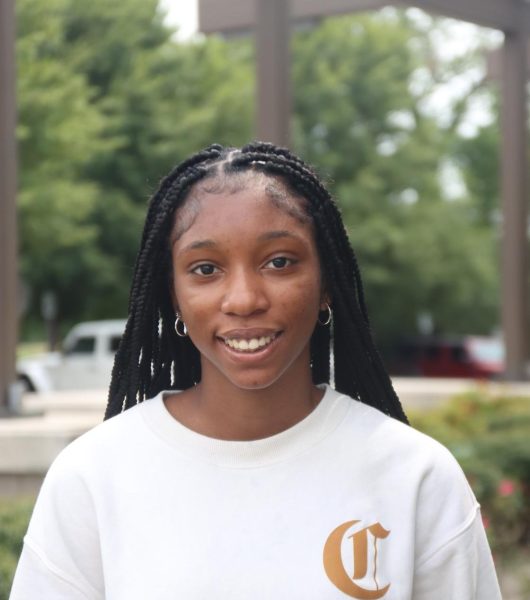Unseen Suppression
December 31, 2018
Arkansas voters passed Issue 2 Nov. 6, which added an amendment requiring individuals to present a valid photo ID to cast non-provisional ballots in person and in-absentee. The supporters of this amendment claim that it will curb “widespread” voter fraud, while those against it cited examples of disenfranchisement due to strict voter laws. To some, this amendment will go unnoticed at the next election, but to others, it will limit their right to participate in democracy.
Despite popular belief, there is not widespread voter fraud in America by illegal immigrants or citizens. The Brennan Center for Justice reports voter fraud “incident rates between 0.0003 percent and 0.0025 percent,” and the estimates for voter fraud among undocumented immigrants are even lower. These estimates do not require such extreme and fiscally irresponsible measures. According to the Washington Post, there have only been 31 confirmed instances of voter fraud between 2000 and 2014. That is a small number of confirmed cases, so the rumor of widespread voting fraud is simply unproven. Even the Republican Majority National Association of Secretaries of State report that they “are not aware of any evidence that supports the voter fraud claims made by President Trump” about undocumented immigrants. The main reason Republicans support strict voter ID laws is not supported by facts.
America has had a long history of disenfranchising the poor and minorities, and voter ID laws could very well reverse some of the progress American democracy has made. According to the American Civil Liberties Union, “up to 25% of African-American citizens of voting age lack government-issued photo ID, compared to only 8% of whites.” These laws would decrease the participation of minorities in democracy who often lean towards Democrat in elections, and some suspect that the Republican party is only pushing these laws to decrease the number of votes for Democratic candidates. Even if voter ID laws are not a political strategy, they still decrease the diversity of the electorate, which creates distress when people are not represented in government. Zoltan Hajnal of the University of San Diego, California analyzed voter turnout and found that “photo identification laws have a differentially negative impact on the turnout of Hispanics, Blacks, and mixed-race Americans in primaries and general elections” in a report on voter suppression. The goal of American democracy is to increase involvement until virtually all people are represented. Voter ID laws threaten this ideal to protect against voter fraud, which is less likely than getting struck by lightning.
While minorities would be hurt the most by strict voter ID laws, poor people of all races would suffer. United States News reports that “more than 20 million Americans—one in 10 eligible voters—do not have the kinds of photo ID required by strict new state voter ID laws,” which is more than the six times the population of Arkansas. The amounts of voters that will be deterred is nothing to dismiss. Strict photo ID laws decrease voter turnout by about three percentage points, which is tens of thousands of votes for each state.
Voter ID laws are not just detrimental to democracy, but could actually stress state budgets. The ACLU reports that states that implement strict voter ID laws, such as Texas, “spend nearly $2 million on voter education and outreach efforts following passage of its Voter ID law.” These laws would require a lot more manpower to check every person’s voter ID and make sure there is no fraud. While some cases of voter fraud might be caught, the burden on the taxpayer would be considerable. The main fiscal problem with these laws would be on the head of the individual. The state government may be able to easily afford voter ID laws, but some poor people may find it difficult. The fees and expenses to obtain a photo ID or some other requirement, depending on the state, can range from $75 to $175. Those who want to vote will allocate money for it, but these fees could act as a deterrent for people who would rather spend the money on food, bills or their children.
Voter ID laws are becoming more of an urgent issue as states choose to make democracy more difficult and selective. The New York Times found that in 2012, only four states require voter ID, but now “thirty-two states — a figure that has been steadily rising — now have some form of voter ID laws.” These laws have not passed without opposition, with a Texas federal appeals court finding them to be discriminatory against minorities and a North Carolina ID law being struck down. The Supreme Court has since upheld Voter ID laws, which has allowed for the continued adoption of this policy by state governments. Most people who voted for Voter ID laws in the last Arkansas local election did not know the negative effects of the laws and did not realize that voter fraud is a smoke screen. If Americans do not reverse voter ID laws, our democracy will be less diverse and representatives will not effectively serve the American people.







